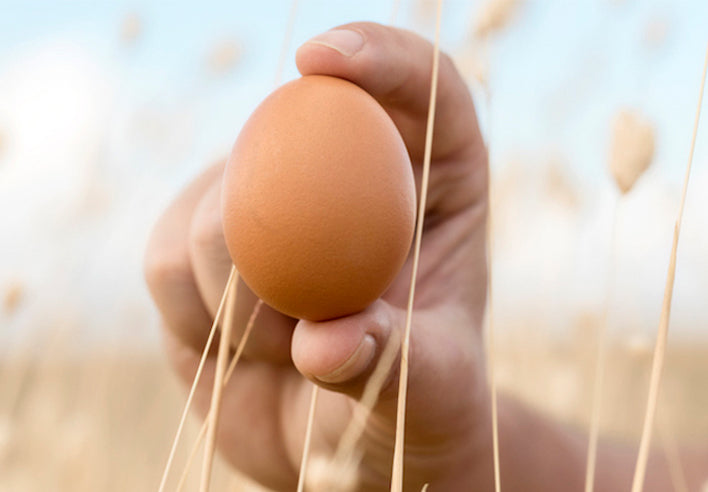One Thing Those Struggling With Anxiety and Depression Can Do To Help Themselves.
Following up on Monday’s conversation about our upcoming webinar, we wanted to express our support for all of those who are struggling with mental health.
This is support we’ve issued before, but the alarming statistics concerning mental health in America haven't changed, and neither has our position on the subject.
People struggling with mental health need a multi-faceted, holistic approach to wellness. That may include medicine, nutritional changes, a change of lifestyle or environment, or talking with a therapist, spiritual advisor or trusted friend … usually it involves support in all of these areas
But there are also steps people can take to help themselves. As our collaborator Dr. Jantz urges, we must always work from a place of hope and possibility, and do all we can to not be swallowed into hopelessness and despair.
We must focus on what we can do to start helping ourselves. This article is going to examine the importance of one of those actions…
Back to childhood
Many assume that with age comes greater proficiency in most tasks. However, we believe there is one task we were significantly more adept at as children… the acquisition of hobbies.
As children, many of us packed our free time with a wide variety of activities such as music lessons, dance classes, playing with action figures, joining a sports team… the list is endless!
But somewhere along the line, many of us lay those hobbies aside as our attention becomes consumed by other matters, namely, our careers.
We believe that finding a spirit-lifting hobby is an important part of a balanced lifestyle and mental wellbeing… and we’re not alone.
A study completed in 2015 found that people who pursue a hobby or “passion” are likely to have a more positive outlook on life, and have a greater resistance to stress. To quote their conclusion:
“Results suggest multiple mechanisms explaining leisure’s effectiveness, which can inform leisure based interventions to improve health and well-being.”
We can already feel the resistance from some of you. In fact, we already know what you’re going to say…
“I just don’t have enough time.”

Image by Gerd Altmann from Pixabay
This is a common refrain, and we’re all guilty of uttering it every once in a while.
Make no mistake, we understand that time is precious. Many lives are filled with a variety of obligations, not just to ourselves but to other people in personal, business, and familial capacities.
However, we would encourage you to consider: Assuming that time is indeed ‘precious,’ is it not then wise to make sure we spend it in a worthwhile manner? If it is, then we ask: Are you spending your time effectively?
Think again of being a child. You had all these activities you found time for… but you also had responsibilities. Many will bemoan a 40 hour work week as the reason for not having any time for hobbies. But as a child, you spent roughly 35 hours in school each week, and likely spent at least 5 hours on homework over the course of a week as well.
Laura Vanderkam spends her time teaching others how to effectively spend theirs. A lot of her work focuses around our perception of time, and reframing it from a negative into a positive.
Instead of trying to find the time to do the things we want, we should build the lives we want in the time that we’ve got.
There are 168 hours in a week. Let’s assume we spend 40 of them working, and 56 of them sleeping (8 hours a night).
That leaves 72 hours in each week. Some of that will be spent eating, commuting, grocery shopping, doing laundry, etc. Still, we would wager that it’s highly unlikely you’re spending every moment of your 72 hours “busy.”
Perhaps you do have free time, but only in short bursts. 15 minutes here or there. What do we do when these moments arise? We take out our phones and scroll through newsfeeds or social media. This isn’t helping.
Laura believes in the power of small moments. How can you spend even 15 minutes effectively? Start reading a book you’ve wanted to get to! Writing a poem, doing a crossword puzzle. The journey of a thousand miles begins with a single step.
Alternately, how can you arrange your day in such a way that you are able to consolidate sets of 15 minutes into larger chunks of time?
Laura labels Friday evenings as a great opportunity to sit down and look at your calendar. She deems it a “low-opportunity cost” time, as many of us are winding down into the weekend at this point. You won’t be taking energy away from much else at this point.
Give it a try. See if you can’t find a way to squeeze out an hour for yourself here or there. Once you’ve done that, we’ll help you figure out how to spend it…
Something to lift your spirits.
Hobbies aren’t activities for passing the time. They should be activities for filling our time with joy. As a result, you can’t just pick any hobby, you need to find one that makes sense for you. But the list of potential hobbies is endless! Where do you start?
We find the best way to get started is from within. There’s likely clues hidden all around your home.
Take a look around your space, whether it’s a bedroom or an office. Look beyond your work accessories. What’s on the shelves? Are there loads of books you haven’t started reading yet?
What’s on your walls? What do you buy when you’re out shopping? Wall art? Well, have you tried painting? Maybe you really enjoy going out to eat. Have you tried cooking? Baking?
Perhaps you find yourself on a video-streaming site late into the evening. Have you ever thought about taking a screenwriting class? An acting class?
Do you find yourself checking sports scores throughout the day? Have you looked into seeing if there is a recreational league you can participate in?
Perhaps you take a little bit of joy when you watch birds pass by the window. Why not try building a birdhouse or feeder for them?
If we can isolate the parts of our life that offer us joy, or an escape from the difficulties of work, then it becomes a simple task to find out how we can become more involved in them.
Very rarely should our hobbies be removed from ourselves; meaning, they shouldn’t be things that we enjoy watching other people do. Otherwise the hobby is accompanied with a sense of wistfulness… “I wish I was doing that…”
Well, let’s stop wishing, and start doing!
* Featured Image Designed by jcomp / Freepik
Related Posts




